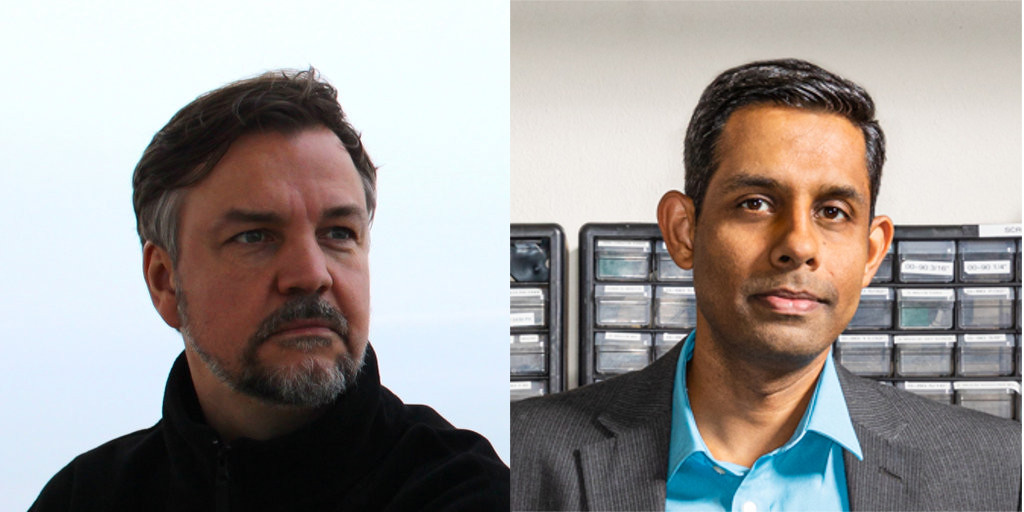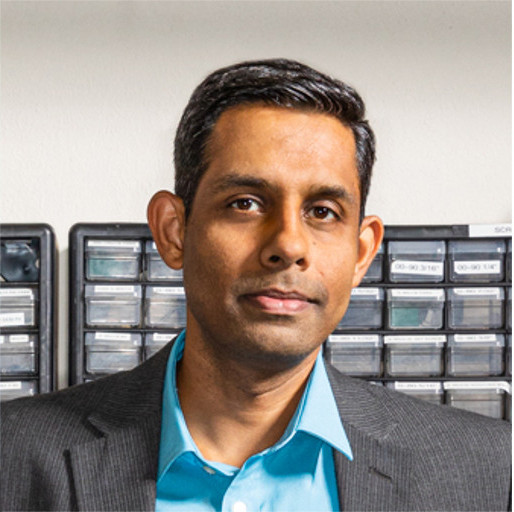#IROS2020 Plenary and Keynote talks focus series #2: Frank Dellaert & Ashish Deshpande

Last Wednesday we started this series of posts showcasing the plenary and keynote talks from the IEEE/RSJ IROS2020 (International Conference on Intelligent Robots and Systems). This is a great opportunity to stay up to date with the latest robotics & AI research from top roboticists in the world. This week we’re bringing you Prof. Frank Dellaert (Georgia Institute of Technology; Google AI) and Prof. Ashish Deshpande (The University of Texas).
 |
Prof. Frank Dellaert – Perception in Aerial, Marine & Space Robotics: a Biased Outlook Bio: Frank Dellaert is a Professor in the School of Interactive Computing at the Georgia Institute of Technology and a Research Scientist at Google AI. While on leave from Georgia Tech in 2016-2018, he served as Technical Project Lead at Facebook’s Building 8 hardware division. Before that he was also Chief Scientist at Skydio, a startup founded by MIT grads to create intuitive interfaces for micro-aerial vehicles. His research is in the overlap between robotics and computer vision, and he is particularly interested in graphical model techniques to solve large-scale problems in mapping, 3D reconstruction, and increasingly model-predictive control. The GTSAM toolbox embodies many of the ideas his research group has worked on in the past few years and is available at https://gtsam.org. |
 |
Prof. Ashish Deshpande – Harmony Exoskeleton: A Journey from Robotics Lab to Stroke Bio: Ashish D. Deshpande is passionate about helping stroke patients recover from their disabilities and he believes robots could serve as important tools in the recovery process. He is a faculty member in Mechanical Engineering at The University of Texas at Austin, where he directs the ReNeu Robotics Lab. His work focuses on the study of human system and design of robotic systems toward the goals accelerating recovery after a neurological injury (e.g. stroke and spinal cord injury), improving the quality of lives of those living disabilities (e.g. amputation) and enhancing lives and productivity of workers, soldiers and astronauts. Specifically, his group has designed two novel exoskeletons for delivering engaging and subject-specific training for neuro-recovery of upper-body movements after stroke and spinal cord injury. Dr. Deshpande is a co-founder of Harmonic Bionics whose mission is to improve rehabilitation outcomes for the stroke patients. |
Daniel Carrillo-Zapata
Managing Editor
Daniel Carrillo-Zapata was awared his PhD in swarm robotics at the Bristol Robotics Lab in 2020. He now fosters the culture of “scientific agitation” to engage in two-way conversations between researchers and society.
Credit: Source link


Comments are closed.